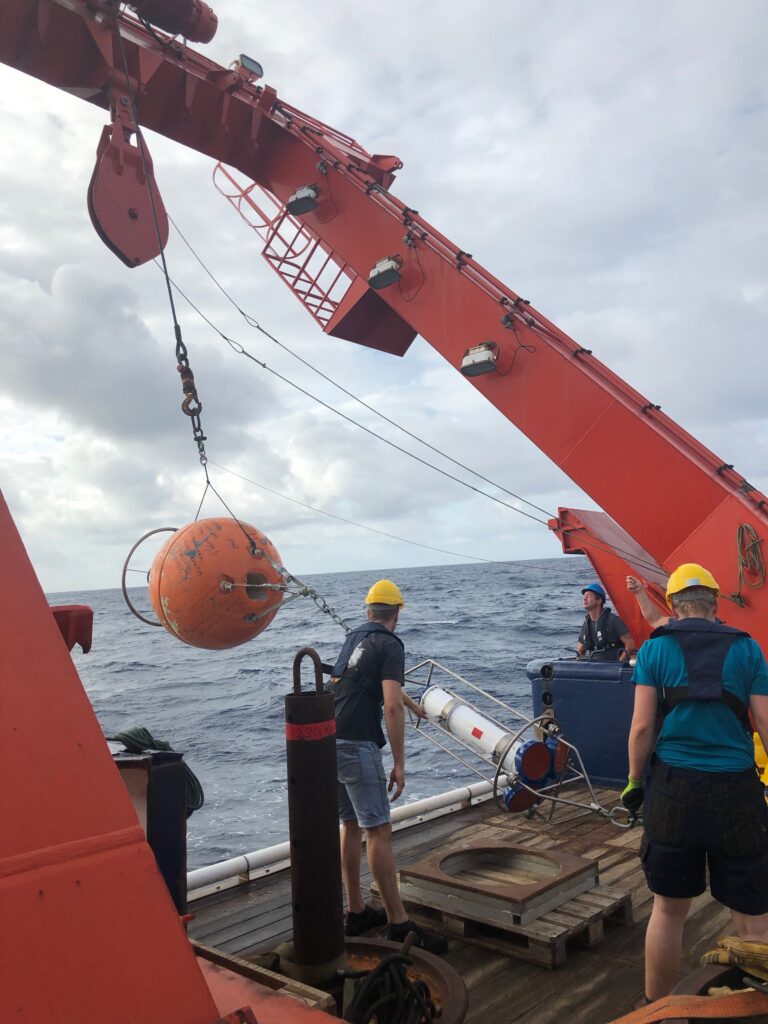A study led by the GEOMAR Helmholtz Centre for Ocean Research Kiel has used long-term observations to investigate the complex interplay between fluctuations in the equatorial current system and variations in oxygen content in the oceans.
The study found that during the past 15 years the intensification of upper-ocean currents resulted in an increasing oxygen content in the equatorial region.
As a result of global warming, the oxygen content in the oceans has decreased globally by about 2% in the past 60 years. However, these regions are characterized by a complex system of ocean currents. At the equator, one of the strongest currents, the Equatorial Undercurrent (EUC), transports water masses eastwards across the Atlantic. The water transport by the EUC is more than 60 times larger than that of the Amazon river.
For many years, scientists at GEOMAR have been investigating in cooperation with the international PIRATA program fluctuations of this current with fixed observation platforms called moorings. Based on the data obtained from these moorings, they were able to prove that the EUC has strengthened by more than 20% between 2008 and 2018. The intensification of this major ocean current is associated with increasing oxygen concentrations in the equatorial Atlantic and an increase in the oxygen-rich layer near the surface.
“At first, this statement sounds encouraging, but it does not describe the entire complexity of the system,” explained project leader and first author Prof Dr Peter Brandt from GEOMAR. “We found that the strengthening of the EUC is mainly caused by a strengthening of the trade winds in the western tropical North Atlantic.”
The analysis of a 60-year data set has shown that the recent oxygen increase in the upper equatorial Atlantic is associated with a multidecadal variability characterized by low oxygen concentrations in the 1990s and early 2000s and high concentrations in the 1960s and 1970s.
“In this respect, our results do not contradict the global trend, but indicate that the observed current intensification likely will switch back into a phase of weaker currents associated with enhanced oxygen reduction. It shows the need for long-term observations in order to be able to separate natural fluctuations of the climate system from trends such as oxygen depletion caused by climate warming,” added Brandt.
These investigations are also based partly on a ship expedition carried out along the equator at the end of 2019 with the German research vessel METEOR. This expedition included a physical, chemical, biogeochemical and biological measurement program that supports the development of climate-based predictions for marine ecosystems as part of the EU-funded TRIATLAS project.
While another expedition with RV METEOR along the equator had to be cancelled due to the Covid-19 pandemic, several long-term moorings in the tropical Atlantic, including the one at the equator, will now be recovered and redeployed during an additional expedition with RV SONNE in June-August 2021.



